O's First-Ever Power List
20 remarkable visionaries who are flexing their muscles in business and finance, politics and justice, science and the arts.
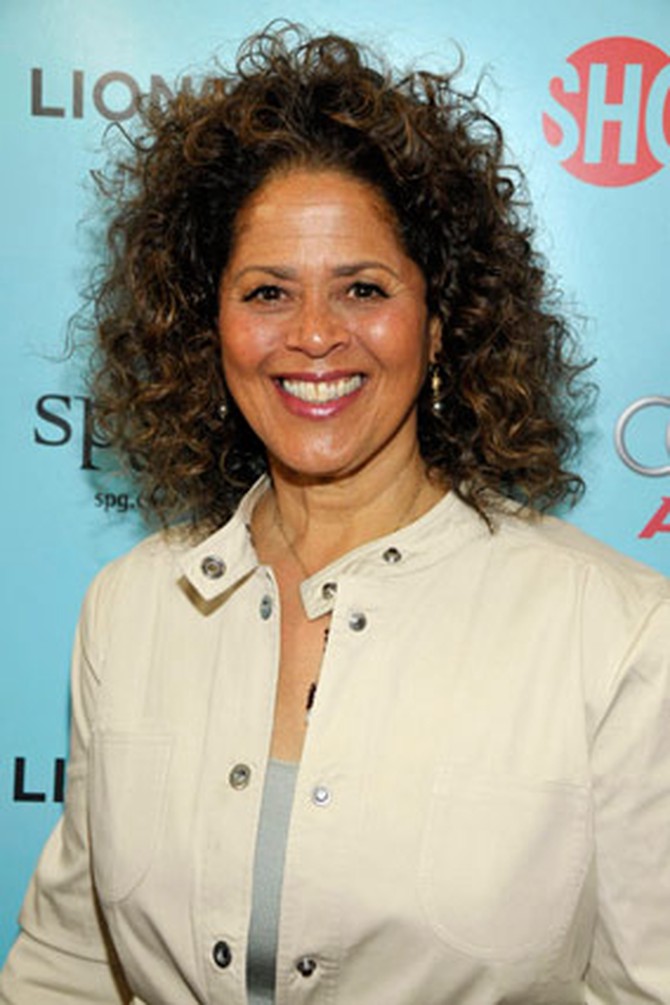
Photo: Eugene Gologursky/WireImage.com
The Power of Loud: Anna Deavere Smith
Actor and playwright
You've seen her in Nurse Jackie and Rachel Getting Married, but Anna Deavere Smith isn't just an actor. Her one-woman plays are a form of theater unto themselves, brilliantly conjuring the voices of real people. Speaking of voices, we asked Smith what happens when you turn up the volume:
August, circa 2000, not far from Monte Carlo, at a rehearsal for a concert. The stage—outside in the bright sun and naked except for masses of tangled wires—was on the French-Italian border. Literally straddling the border. Workmen were setting up for a soloist who would sing that night. I was sitting in the bleachers, enthralled. Suddenly a fast-moving train loudly zoomed through on its way from France to Italy. I put down my espresso. Would that train be going through during the concert? Whose idea was it to put a singer in the middle of a train route, anyway?
That night, when the great soprano Jessye Norman stepped onstage, exhilaration was followed by one engulfing human hush. Just at a peak moment, I heard that train approaching. Jessye Norman's voice shut it down.
We don't all have the ability to sing out over a racing train, but we do have the power to speak up—and out. A voice can get a party started, shout down opponents, or lead a country. Vocal cords are like any other part of your body. They are there to be worked.
You've seen her in Nurse Jackie and Rachel Getting Married, but Anna Deavere Smith isn't just an actor. Her one-woman plays are a form of theater unto themselves, brilliantly conjuring the voices of real people. Speaking of voices, we asked Smith what happens when you turn up the volume:
August, circa 2000, not far from Monte Carlo, at a rehearsal for a concert. The stage—outside in the bright sun and naked except for masses of tangled wires—was on the French-Italian border. Literally straddling the border. Workmen were setting up for a soloist who would sing that night. I was sitting in the bleachers, enthralled. Suddenly a fast-moving train loudly zoomed through on its way from France to Italy. I put down my espresso. Would that train be going through during the concert? Whose idea was it to put a singer in the middle of a train route, anyway?
That night, when the great soprano Jessye Norman stepped onstage, exhilaration was followed by one engulfing human hush. Just at a peak moment, I heard that train approaching. Jessye Norman's voice shut it down.
We don't all have the ability to sing out over a racing train, but we do have the power to speak up—and out. A voice can get a party started, shout down opponents, or lead a country. Vocal cords are like any other part of your body. They are there to be worked.
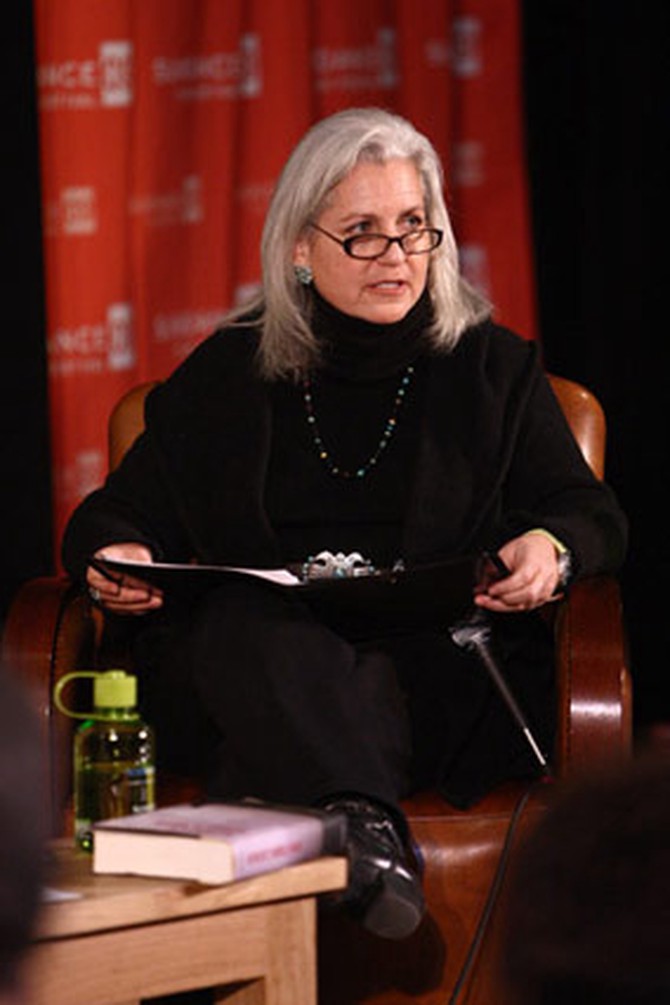
Photo: Chad Hurst/WireImage.com
The Power of the Crusade: Terry Tempest Williams
Author, activist, teacher
Terry Tempest Williams writes with intelligence, eloquence, and compassion about issues as disparate as nuclear testing, species extinction, genocide in Rwanda, and the need to preserve the American wilderness. A fifth-generation Utah Mormon and natural historian, she is also a survivor of the government's 1950s and '60s atomic testing in the desert Southwest. A tireless advocate of social justice, she has twice testified before Congress about women's health and the link between environmental toxins and cancer. Her friend and fellow writer Rick Bass puts her passion in perspective...
When I think of Terry I think of the great calm she can access in times of deep crisis. I think of the time she found herself housed in an Idaho jail and passed the night writing and reading with her spellbound meth-addict cellmates. Terry spent that night in jail because she had more important things to do than renew her driver's license or auto plates or insurance or any of it, so that when she got stopped it was straight to the clinker, the one place she least wanted to be—but also, on that particular night, the one place she most needed to be. All night long her reading of those women's words, and her own, calmed them, somehow reminded them of a calm each had once known but lost.
Possessing a healthy but hidden temper, a disdain for abuses of authority, and an aggravating streak of perfectionism, Terry writes from equal parts outrage and love. She is human enough to be part of the world (though she is not exactly of it). And she is the one, more than any other, whom I would pick to save it.
Terry Tempest Williams writes with intelligence, eloquence, and compassion about issues as disparate as nuclear testing, species extinction, genocide in Rwanda, and the need to preserve the American wilderness. A fifth-generation Utah Mormon and natural historian, she is also a survivor of the government's 1950s and '60s atomic testing in the desert Southwest. A tireless advocate of social justice, she has twice testified before Congress about women's health and the link between environmental toxins and cancer. Her friend and fellow writer Rick Bass puts her passion in perspective...
When I think of Terry I think of the great calm she can access in times of deep crisis. I think of the time she found herself housed in an Idaho jail and passed the night writing and reading with her spellbound meth-addict cellmates. Terry spent that night in jail because she had more important things to do than renew her driver's license or auto plates or insurance or any of it, so that when she got stopped it was straight to the clinker, the one place she least wanted to be—but also, on that particular night, the one place she most needed to be. All night long her reading of those women's words, and her own, calmed them, somehow reminded them of a calm each had once known but lost.
Possessing a healthy but hidden temper, a disdain for abuses of authority, and an aggravating streak of perfectionism, Terry writes from equal parts outrage and love. She is human enough to be part of the world (though she is not exactly of it). And she is the one, more than any other, whom I would pick to save it.

Photo: Leslie Billman/WireImage.com
The Power of Female Strength: Venus Williams
Champion
She has earned 19 Grand Slam titles and three Olympic gold medals, and was a critical voice in the successful lobbying effort to win equal prize money for female players at Wimbledon and the French Open (a cause she took up from one of her mentors, Billie Jean King). Both on and off the court, Venus Williams embodies a perfect marriage of power and grace. In the singular artistry of her play, we see that beauty and brawn aren't mutually exclusive. King leads the ovation:
Venus is wonderful to watch. I've known her since she was a little kid, and she still amazes me. I sit in the box at Wimbledon and still don't believe my eyes—how much ground she can cover, how every step is huge and light and elegant at the same time. She runs like a beautiful gazelle. Her body is so long, but her wrists and ankles are tiny—she's delicate in some ways, and yet so strong.
Her wingspan is enormous. So much leverage—when she swings, the arc is gigantic, and that creates more power. She's held the record for the fastest women's serve ever. I'll say, "Venus, come up to the net and put your arms out." Then I put a racket in her right hand and say, "Okay, how can anyone get by you?" She just starts giggling. "Let's also talk about how tall you are, and how fast, and what kind of vertical jump you have. Do you realize what God gave you?"
Whenever I go to the ballet, I think of how we don't connect dance and sports in our minds as much as we should. Venus reminds me of that, too.
She has earned 19 Grand Slam titles and three Olympic gold medals, and was a critical voice in the successful lobbying effort to win equal prize money for female players at Wimbledon and the French Open (a cause she took up from one of her mentors, Billie Jean King). Both on and off the court, Venus Williams embodies a perfect marriage of power and grace. In the singular artistry of her play, we see that beauty and brawn aren't mutually exclusive. King leads the ovation:
Venus is wonderful to watch. I've known her since she was a little kid, and she still amazes me. I sit in the box at Wimbledon and still don't believe my eyes—how much ground she can cover, how every step is huge and light and elegant at the same time. She runs like a beautiful gazelle. Her body is so long, but her wrists and ankles are tiny—she's delicate in some ways, and yet so strong.
Her wingspan is enormous. So much leverage—when she swings, the arc is gigantic, and that creates more power. She's held the record for the fastest women's serve ever. I'll say, "Venus, come up to the net and put your arms out." Then I put a racket in her right hand and say, "Okay, how can anyone get by you?" She just starts giggling. "Let's also talk about how tall you are, and how fast, and what kind of vertical jump you have. Do you realize what God gave you?"
Whenever I go to the ballet, I think of how we don't connect dance and sports in our minds as much as we should. Venus reminds me of that, too.
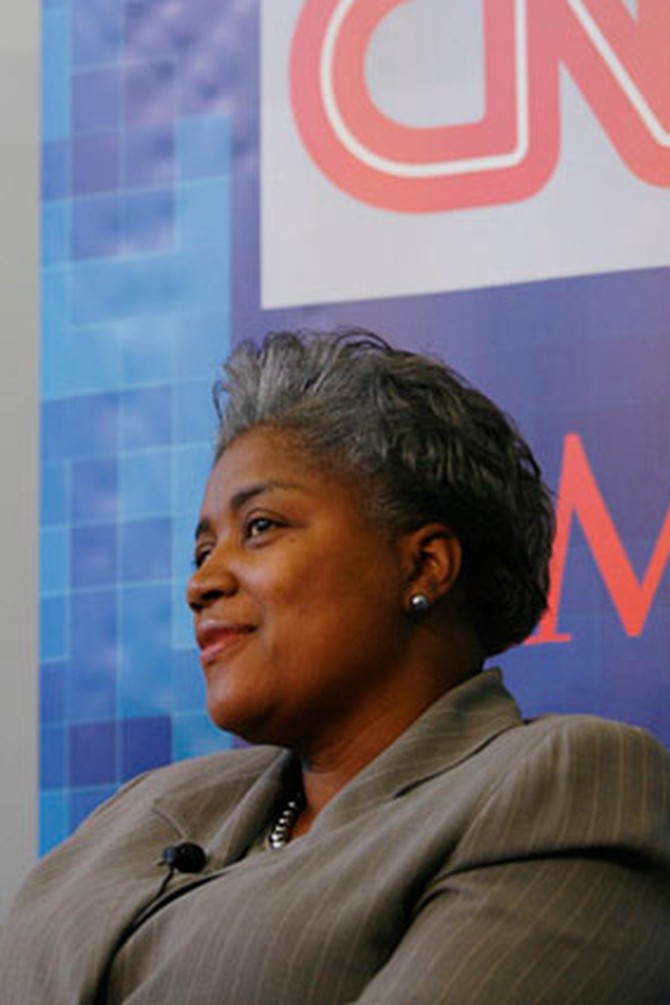
Photo: Joe Kohen/WireImage.com
The Power of Ambition: Donna Brazile
Political analyst, force of nature
Donna Brazile grew up in New Orleans and discovered campaigning at the age of 9, when she went door-to-door for a candidate who'd promised to build a playground in her neighborhood. Thirty-two years later, she became the first African-American woman to manage a major presidential campaign (Al Gore's, in 2000). Now 49, she teaches in the women's and gender studies program at Georgetown University and is a contributor to O magazine, CNN, NPR, and ABC News. We asked her to tell us about the many things she has aspired to over the years:
I came into this world anxious to be a part of it. I wanted to find my place at the table. I wanted to be successful. In high school, I wanted to be involved in everything that was happening: I wanted to join the Soul Sisters Club and write poetry and do athletics and student council. I wanted to use my big mouth, and my energy, and my intellect. And today I still want those things—and then some. I want to make a difference in presidential politics. I want to educate and inform. I want to connect to the next generation. One day I want us to put a woman in the White House. I want to write poetry—not like when I was young, about the gory details of growing up poor and black, but poetry that comes from the calming stream flowing in my soul. I want to practice nonviolence. I want to practice joy. I want to learn from my enemies, even if all I learn is not to be like them. I want to get the last word. I want to do a little bit of everything, and when I'm not stirring some pot somewhere or creating some drama, then I want to be alone in my garden.
Donna Brazile grew up in New Orleans and discovered campaigning at the age of 9, when she went door-to-door for a candidate who'd promised to build a playground in her neighborhood. Thirty-two years later, she became the first African-American woman to manage a major presidential campaign (Al Gore's, in 2000). Now 49, she teaches in the women's and gender studies program at Georgetown University and is a contributor to O magazine, CNN, NPR, and ABC News. We asked her to tell us about the many things she has aspired to over the years:
I came into this world anxious to be a part of it. I wanted to find my place at the table. I wanted to be successful. In high school, I wanted to be involved in everything that was happening: I wanted to join the Soul Sisters Club and write poetry and do athletics and student council. I wanted to use my big mouth, and my energy, and my intellect. And today I still want those things—and then some. I want to make a difference in presidential politics. I want to educate and inform. I want to connect to the next generation. One day I want us to put a woman in the White House. I want to write poetry—not like when I was young, about the gory details of growing up poor and black, but poetry that comes from the calming stream flowing in my soul. I want to practice nonviolence. I want to practice joy. I want to learn from my enemies, even if all I learn is not to be like them. I want to get the last word. I want to do a little bit of everything, and when I'm not stirring some pot somewhere or creating some drama, then I want to be alone in my garden.

Photo: Jason Kempin/WireImage.com
The Power of Fear: Lauren Ambrose
At first glance, Lauren Ambrose's dewy face and doe eyes suggest an innocent naïveté. But anyone familiar with her devastating performances knows that her exterior belies an extraordinary intensity and a preternatural ability to convey the humanity of her characters. Best known for her Emmy-nominated role in the HBO drama Six Feet Under, Ambrose, 32, also wowed audiences in a Broadway production of the Eugène Ionesco play Exit the King, and can be heard in the film adaptation of Where the Wild Things Are . Here, she pulls back the curtain on her favorite emotion:
I enjoy playing roles that push me to my absolute capacity, emotionally and physically—that feel like a leap of faith. I often take a role without knowing what I'm supposed to do, what's required of me. Figuring that out is a process, and for me that process starts with fear.
Every single time I begin a job I think, "I'm a fraud. I'm going to get fired. What am I doing here? They're going to find me out." But you can't tell yourself you shouldn't feel that way, because that doesn't help. What helps is really living with what it feels like to be that afraid, and beginning from there. The fear is the way through.
You can't deny, either in life or as an actor, what's really going on. So even though I might be playing the most confident person in the world, if I'm ready to throw up with nerves, that fear has to be present somehow. I think I need it—that daunting feeling like I'm looking up at Mount Everest. It's what lets me go into rehearsal without expecting anything. But I also know that through diligence, and not letting the fear take over, something will come. I love that feeling, like jumping off a cliff—it's a big, powerful, enlivening, animal feeling. I think, "What will come up, what will come out, if I really relinquish? What real, live thing can happen in the room, and go into the art we're making?" That's what's truly scary, but also such a thrill.
I enjoy playing roles that push me to my absolute capacity, emotionally and physically—that feel like a leap of faith. I often take a role without knowing what I'm supposed to do, what's required of me. Figuring that out is a process, and for me that process starts with fear.
Every single time I begin a job I think, "I'm a fraud. I'm going to get fired. What am I doing here? They're going to find me out." But you can't tell yourself you shouldn't feel that way, because that doesn't help. What helps is really living with what it feels like to be that afraid, and beginning from there. The fear is the way through.
You can't deny, either in life or as an actor, what's really going on. So even though I might be playing the most confident person in the world, if I'm ready to throw up with nerves, that fear has to be present somehow. I think I need it—that daunting feeling like I'm looking up at Mount Everest. It's what lets me go into rehearsal without expecting anything. But I also know that through diligence, and not letting the fear take over, something will come. I love that feeling, like jumping off a cliff—it's a big, powerful, enlivening, animal feeling. I think, "What will come up, what will come out, if I really relinquish? What real, live thing can happen in the room, and go into the art we're making?" That's what's truly scary, but also such a thrill.

Photo: Courtesy of Arivn Bull
The Power of the Pause: Pema Chödrön
Buddhist nun
A former elementary school teacher, Pema Chödrön, 73, was the first American woman to be ordained in the Tibetan tradition. As principal teacher at Gampo Abbey, a monastery in Nova Scotia, she has written accessibly and movingly about integrating Buddhist practice into daily life. The following passage is adapted from her 11th book, Taking the Leap.
If right now our emotional reaction to seeing a certain person or hearing certain news is to fly into a rage or to get despondent or something equally extreme, it's because we have been cultivating that particular habit for a very long time. But as my teacher Chögyam Trungpa Rinpoche used to say, we can approach our lives as an experiment. In the next moment, in the next hour, we could choose to stop, to slow down, to be still for a few seconds. We could experiment with interrupting the usual chain reaction, and not spin off in the usual way. We don't need to blame someone else, and we don't need to blame ourselves.
Pausing is very helpful in this process. It creates a momentary contrast between being completely self-absorbed and being awake and present. You just stop for a few seconds, breathe deeply, and move on. Chögyam Trungpa used to refer to this as the gap. In the middle of just living, which is usually a pretty caught-up experience characterized by a lot of internal discussion, you just pause.
And once you start doing it, pausing nurtures you; you begin to prefer it to being all caught up.
More: Read the Pema Chödrön O Interview
A former elementary school teacher, Pema Chödrön, 73, was the first American woman to be ordained in the Tibetan tradition. As principal teacher at Gampo Abbey, a monastery in Nova Scotia, she has written accessibly and movingly about integrating Buddhist practice into daily life. The following passage is adapted from her 11th book, Taking the Leap.
If right now our emotional reaction to seeing a certain person or hearing certain news is to fly into a rage or to get despondent or something equally extreme, it's because we have been cultivating that particular habit for a very long time. But as my teacher Chögyam Trungpa Rinpoche used to say, we can approach our lives as an experiment. In the next moment, in the next hour, we could choose to stop, to slow down, to be still for a few seconds. We could experiment with interrupting the usual chain reaction, and not spin off in the usual way. We don't need to blame someone else, and we don't need to blame ourselves.
Pausing is very helpful in this process. It creates a momentary contrast between being completely self-absorbed and being awake and present. You just stop for a few seconds, breathe deeply, and move on. Chögyam Trungpa used to refer to this as the gap. In the middle of just living, which is usually a pretty caught-up experience characterized by a lot of internal discussion, you just pause.
And once you start doing it, pausing nurtures you; you begin to prefer it to being all caught up.
More: Read the Pema Chödrön O Interview

Photo: Mona T. Brooks
Who Put You in Charge? Lateefah Simon
Community leader, change agent
At 15 she was a client at the Center for Young Women's Development, which helps troubled and poor young women transform their lives. By 19 she was the center's executive director. Seven years later she received a MacArthur "genius" grant. Today Simon, 32, is executive director of the Lawyers' Committee for Civil Rights in San Francisco, a senior at Mills College, and the mother of a 13-year-old daughter. We asked her how she claimed her power:
I grew up in the Fillmore, a community in San Francisco that was hit hard by the crack-cocaine epidemic. My neighborhood was at the edge of the Castro, where men were dying of AIDS, and I knew the black community was suffering, too. With all that tragedy around, I began to politicize what I saw—I felt entitled to be political. Once you feel that, everything is in your grasp: You think, "I can learn to speak in front of people, write grants, develop policy. It may take me longer, but I can do it." When I was 18 and eight months pregnant, I would go and speak about HIV, and I knew people were thinking, "Who are you to talk about safe sex?" But I didn't apologize. I want to change the lives of women in this country—and that should be done by someone who had a baby at 19, who white-knuckled her way through college, who taught herself to run an organization. When people say, "How do you do it?" I say I'm not doing half the work my grandmother did. If you want to inflict your change, you have to recognize who you're accountable to. The women before me accepted nothing but the best, and I owe it to them to lead.
At 15 she was a client at the Center for Young Women's Development, which helps troubled and poor young women transform their lives. By 19 she was the center's executive director. Seven years later she received a MacArthur "genius" grant. Today Simon, 32, is executive director of the Lawyers' Committee for Civil Rights in San Francisco, a senior at Mills College, and the mother of a 13-year-old daughter. We asked her how she claimed her power:
I grew up in the Fillmore, a community in San Francisco that was hit hard by the crack-cocaine epidemic. My neighborhood was at the edge of the Castro, where men were dying of AIDS, and I knew the black community was suffering, too. With all that tragedy around, I began to politicize what I saw—I felt entitled to be political. Once you feel that, everything is in your grasp: You think, "I can learn to speak in front of people, write grants, develop policy. It may take me longer, but I can do it." When I was 18 and eight months pregnant, I would go and speak about HIV, and I knew people were thinking, "Who are you to talk about safe sex?" But I didn't apologize. I want to change the lives of women in this country—and that should be done by someone who had a baby at 19, who white-knuckled her way through college, who taught herself to run an organization. When people say, "How do you do it?" I say I'm not doing half the work my grandmother did. If you want to inflict your change, you have to recognize who you're accountable to. The women before me accepted nothing but the best, and I owe it to them to lead.
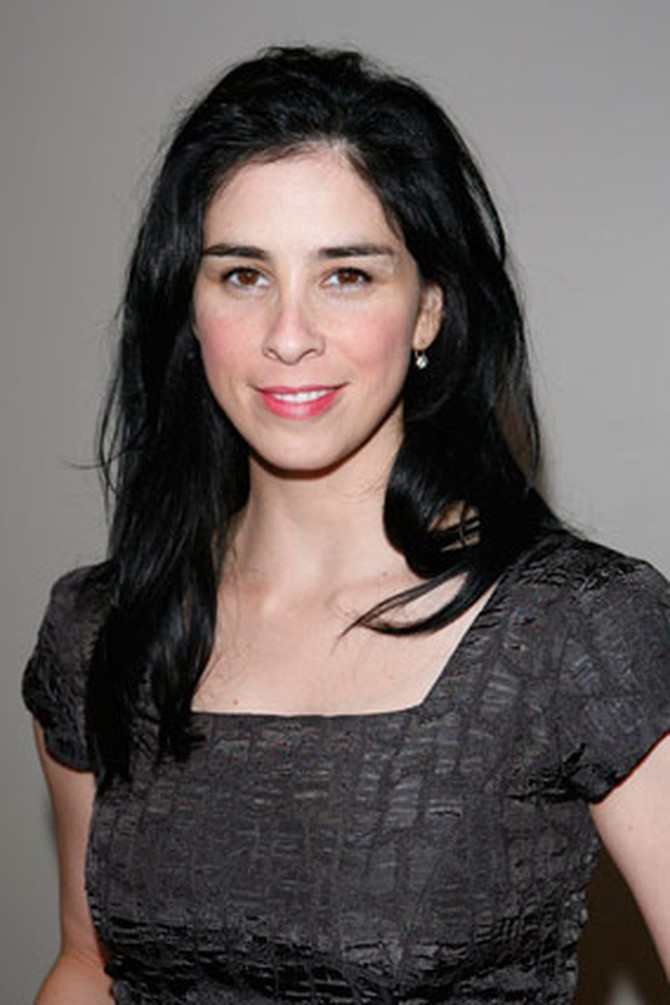
Photo: Jean Baptiste Lacroix/WireImage.com
The Power of Transgression: Sarah Silverman
Bad-girl comic
Her father taught her how to swear when she was a toddler. Today, at 39, she's still swearing—until recently, she wrote, produced, and starred in The Sarah Silverman Program (Comedy Central), in which her character becomes engaged to her dog, has a one-night stand with God, and sues Mongolia for rape. Her latest book The Bedwetter: Stories of Courage, Redemption, and Pee made the NY Times bestseller list. We stopped laughing long enough to write 71 appreciative words (if bed-wetting counts as one word):
What do you get when you cross Lenny Bruce with Gidget? You get a seriously funny, profane, lacerating, and disturbingly earnest creature who can persuade nearly everyone's nana to vote for Barack Obama ("His brisket is beyond"), talk movingly about bed-wetting (her own), and convince Matt Damon to—well—you know. In other words: You get Sarah Silverman, whose electrifying comedy buzzes and sparks with the thrill of saying the unsayable.
Her father taught her how to swear when she was a toddler. Today, at 39, she's still swearing—until recently, she wrote, produced, and starred in The Sarah Silverman Program (Comedy Central), in which her character becomes engaged to her dog, has a one-night stand with God, and sues Mongolia for rape. Her latest book The Bedwetter: Stories of Courage, Redemption, and Pee made the NY Times bestseller list. We stopped laughing long enough to write 71 appreciative words (if bed-wetting counts as one word):
What do you get when you cross Lenny Bruce with Gidget? You get a seriously funny, profane, lacerating, and disturbingly earnest creature who can persuade nearly everyone's nana to vote for Barack Obama ("His brisket is beyond"), talk movingly about bed-wetting (her own), and convince Matt Damon to—well—you know. In other words: You get Sarah Silverman, whose electrifying comedy buzzes and sparks with the thrill of saying the unsayable.
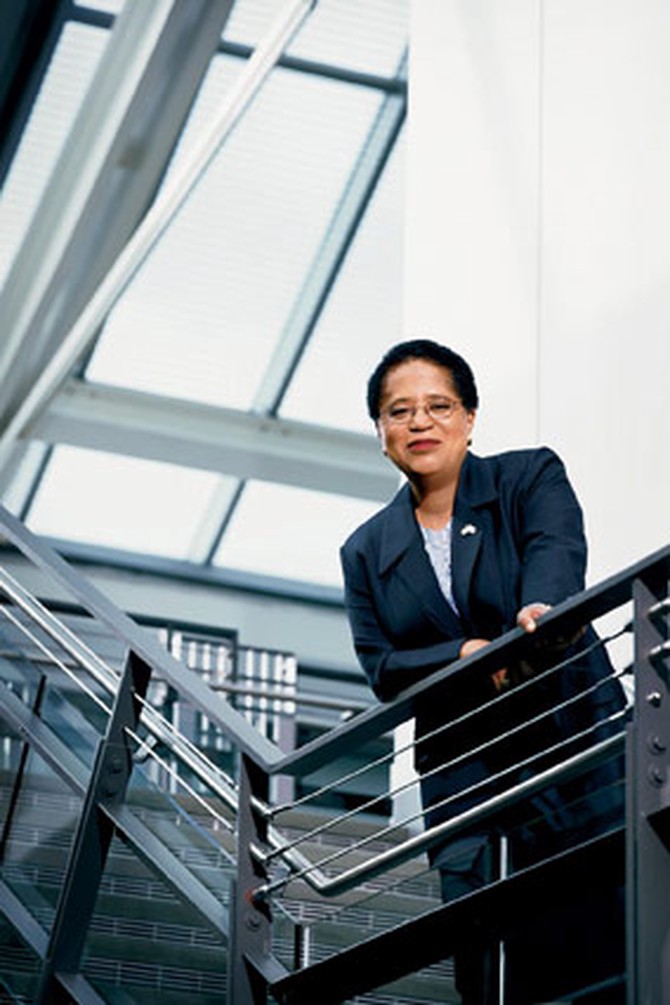
Photo: Rensselaer Polytechnic Institute
Power: The Equation: Shirley Ann Jackson, PhD
Theoretical physicist, university president
Quick—think of a woman whose name is synonymous with science. For a century, the only option was Marie Curie, but the name on the lips of future generations may well be Shirley Ann Jackson. Her résumé is a catalog of firsts: first African-American woman to earn a doctorate from MIT. First woman and first African-American to chair the U.S. Nuclear Regulatory Commission. First African-American woman to lead a national research university (Rensselaer Polytechnic Institute, where applications have doubled in the past four years). We asked Jackson to devise—and explain—a formula for power:
{Preparation10 (Passion + Persistence)}
{Connection10 (Compassion + Courage)}
{Excellence10 (Achievement + Wisdom)}
= Power
{P110 (P2 + P3)} + {C110( C2 + C3)} + {E10 (A + W)} = Power
Follow your passion with persistence, magnified by intense preparation. Use compassion and courage to weave a strong web of connections. Use focused excellence to drive achievements and gain wisdom. It is through the combination of all these things that your power will reveal itself.
The magnitude and reach of your power is up to you.
You must be prepared; you must commit the time, energy, and effort required to achieve. Be persistent. The passion you exhibit for your ideas and ideals and the compassion you show for others will further enhance your power.
Connectivity is key; it is what creates and strengthens your web of opportunity. The more connected you are, and the stronger your connections, the more effective you will be in obtaining and using power to achieve your goals.
All of this requires courage: the courage of your convictions, the courage to get started, the courage to keep going.
Quick—think of a woman whose name is synonymous with science. For a century, the only option was Marie Curie, but the name on the lips of future generations may well be Shirley Ann Jackson. Her résumé is a catalog of firsts: first African-American woman to earn a doctorate from MIT. First woman and first African-American to chair the U.S. Nuclear Regulatory Commission. First African-American woman to lead a national research university (Rensselaer Polytechnic Institute, where applications have doubled in the past four years). We asked Jackson to devise—and explain—a formula for power:
{Connection10 (Compassion + Courage)}
{Excellence10 (Achievement + Wisdom)}
= Power
{P110 (P2 + P3)} + {C110( C2 + C3)} + {E10 (A + W)} = Power
Follow your passion with persistence, magnified by intense preparation. Use compassion and courage to weave a strong web of connections. Use focused excellence to drive achievements and gain wisdom. It is through the combination of all these things that your power will reveal itself.
The magnitude and reach of your power is up to you.
You must be prepared; you must commit the time, energy, and effort required to achieve. Be persistent. The passion you exhibit for your ideas and ideals and the compassion you show for others will further enhance your power.
Connectivity is key; it is what creates and strengthens your web of opportunity. The more connected you are, and the stronger your connections, the more effective you will be in obtaining and using power to achieve your goals.
All of this requires courage: the courage of your convictions, the courage to get started, the courage to keep going.
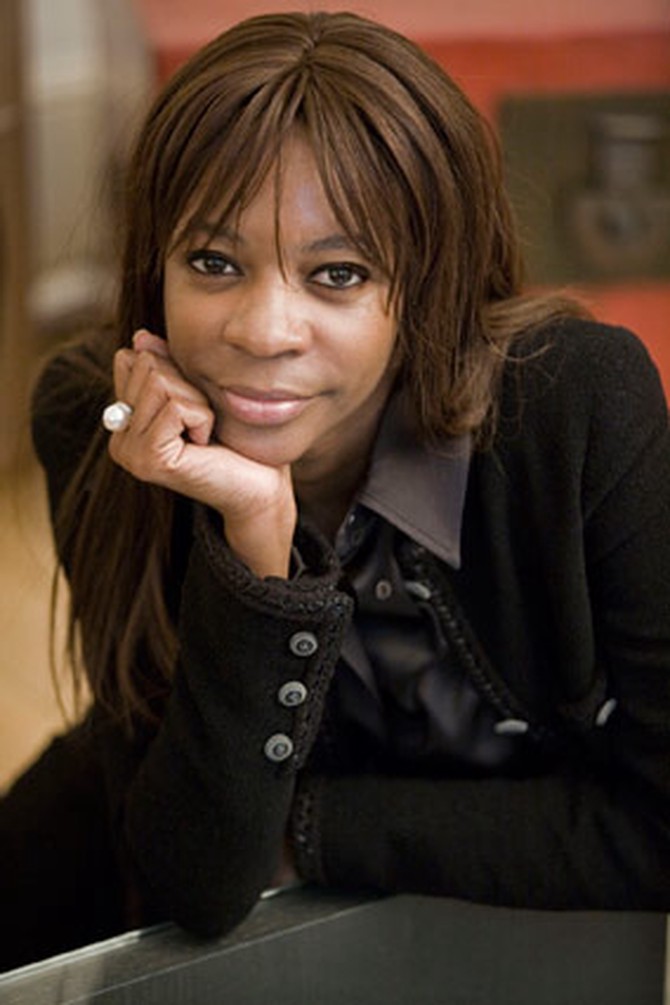
The Power of Going Against the Grain: Dambisa Moyo
Economist and provocateur
Who would ever suggest that aid to Africa might be a bad thing? Dambisa Moyo would. Born and raised in Zambia, the 41-year-old Harvard- and Oxford-educated economist has gotten the world's attention with her stark message: Systemic aid to Africa (aid from institutions such as governments or the World Bank) breeds corruption and dependence—and must stop. Her thesis, laid out in her best-selling book, Dead Aid, has met with acclaim and criticism, but there's no doubt it's challenging conventional wisdom about the relationship between developed and underdeveloped nations. She explains the art of agreeing to disagree .
If you question aid to Africa, as I did, you're quickly labeled racist or insensitive or extremist. People use inflammatory language; they say your arguments are foolish, stupid, cruel. But if you ask, "Would you prefer we live in the status quo?" you get a silence.
Part of power is emphasizing what everyone agrees on, accepting other views, so you can create a comfort zone of respect and have more space to influence people's thinking. In my work, the conversation is too often "You're against aid and I'm for aid," when it should be "We all want to see Africa break its dependence on aid." Real power comes from making everyone feel that they're on the same page.
Who would ever suggest that aid to Africa might be a bad thing? Dambisa Moyo would. Born and raised in Zambia, the 41-year-old Harvard- and Oxford-educated economist has gotten the world's attention with her stark message: Systemic aid to Africa (aid from institutions such as governments or the World Bank) breeds corruption and dependence—and must stop. Her thesis, laid out in her best-selling book, Dead Aid, has met with acclaim and criticism, but there's no doubt it's challenging conventional wisdom about the relationship between developed and underdeveloped nations. She explains the art of agreeing to disagree .
If you question aid to Africa, as I did, you're quickly labeled racist or insensitive or extremist. People use inflammatory language; they say your arguments are foolish, stupid, cruel. But if you ask, "Would you prefer we live in the status quo?" you get a silence.
Part of power is emphasizing what everyone agrees on, accepting other views, so you can create a comfort zone of respect and have more space to influence people's thinking. In my work, the conversation is too often "You're against aid and I'm for aid," when it should be "We all want to see Africa break its dependence on aid." Real power comes from making everyone feel that they're on the same page.
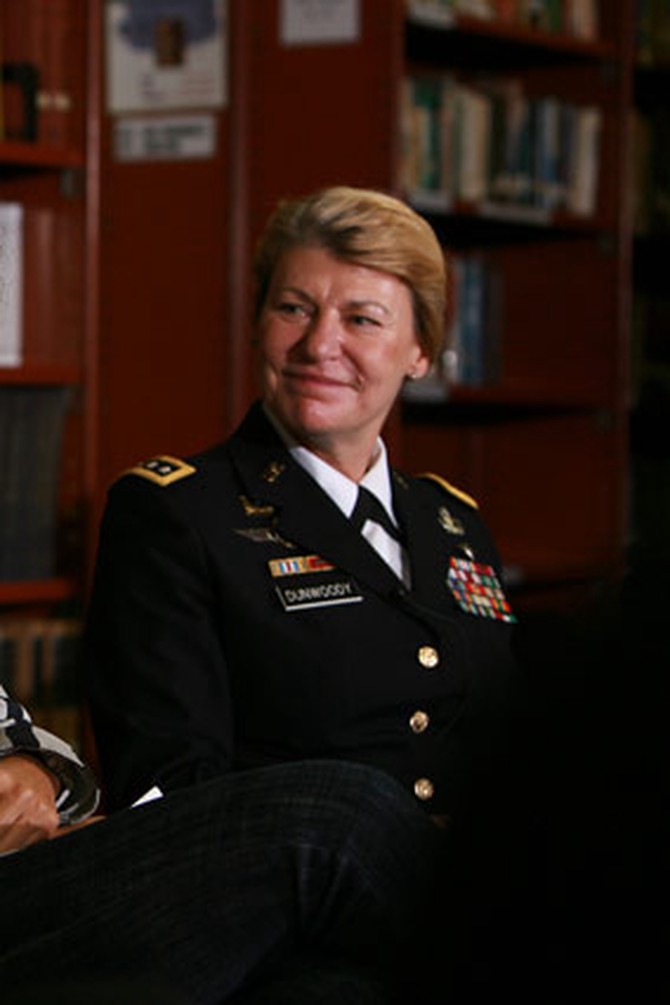
Photo: Jay Westcott/WireImage.com
Cracking the Brass Ceiling: General Ann E. Dunwoody
Four-star general, U.S. Army
In 2008 Ann E. Dunwoody became the first female four-star general in American military history. (In the U.S. Army, one higher rank exists—General of the Army—but only two officers have ever held it: George Washington and John Pershing.) Dunwoody is in charge of army logistics; around the world, it is her 61,000-plus employees who make sure American troops have everything from beans to bullets, helmets to helicopters, spare parts to spare ribs. We asked her about her code of conduct:
I never intended to make the military a career. I was going to be a phys ed teacher. But I tried a college program—they paid me $500 a month in exchange for two years in the army—and I fell in love. It was work that offered something new every day. There were physical challenges, logistical challenges. It was hard. It was fun.
When I was commissioned, in 1975, the army was rebuilding after Vietnam, and just starting to integrate women. Early on, at airborne school, where we learned to jump out of planes, they encouraged us to cut our hair. If we kept it long, it had to be pulled back and off our necks. But then they said we couldn't wear barrettes—we had to tape our hair to our head, with what we call 100-mile-an-hour tape. It's like duct tape, but green. Most people cut their hair. I didn't.
A little later, when I was a platoon leader at Fort Sill in Oklahoma, there was a tendency to put me in charge of women only. There were other frustrations, too. Like the time I finished some advanced training, then got a lower job than I should have. All I said was, "I'm going to go in and do my best." I believe when you do that, people recognize your talent. And it worked.
In 2008 Ann E. Dunwoody became the first female four-star general in American military history. (In the U.S. Army, one higher rank exists—General of the Army—but only two officers have ever held it: George Washington and John Pershing.) Dunwoody is in charge of army logistics; around the world, it is her 61,000-plus employees who make sure American troops have everything from beans to bullets, helmets to helicopters, spare parts to spare ribs. We asked her about her code of conduct:
I never intended to make the military a career. I was going to be a phys ed teacher. But I tried a college program—they paid me $500 a month in exchange for two years in the army—and I fell in love. It was work that offered something new every day. There were physical challenges, logistical challenges. It was hard. It was fun.
When I was commissioned, in 1975, the army was rebuilding after Vietnam, and just starting to integrate women. Early on, at airborne school, where we learned to jump out of planes, they encouraged us to cut our hair. If we kept it long, it had to be pulled back and off our necks. But then they said we couldn't wear barrettes—we had to tape our hair to our head, with what we call 100-mile-an-hour tape. It's like duct tape, but green. Most people cut their hair. I didn't.
A little later, when I was a platoon leader at Fort Sill in Oklahoma, there was a tendency to put me in charge of women only. There were other frustrations, too. Like the time I finished some advanced training, then got a lower job than I should have. All I said was, "I'm going to go in and do my best." I believe when you do that, people recognize your talent. And it worked.
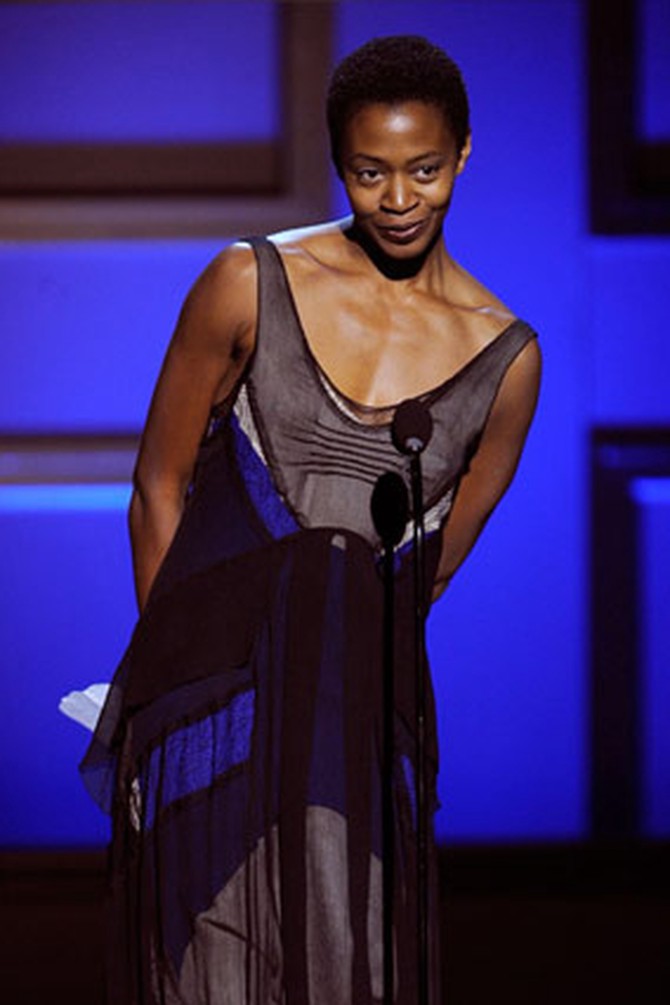
Photo: L Busacca/WireImage.com
The Power of the Image: Kara Walker
Artist
One of the most audacious talents of her generation, Kara Walker, 40, is famous for her paper silhouette installations and videos depicting graphic and fantastical scenes of violence, sexuality, and racism in the antebellum South: a male slave impregnated by his owner, a figure lurking beneath a woman's hoop skirt, a comely Southern belle idling near the severed heads of several slaves—her ax still within reach. The images seem at once ancient and immediate, dainty yet grotesque. Walker's work rips open the grim ironies of race as it has been lived in our country for hundreds of years; she does no less than create a secret history of America. In her words:
The work began by thinking about my own body as it encountered the mythologies of the world: I was fed up with the expectations of what a black girl ought to be, but instead of rejecting them outright, I thought I would embrace every concept out there, sort of flouting the notions and taunting those who held them at the same time. I've met people who feel they are in complete cahoots with the work, and with my bizarre imagination; people who don't know what I'm trying to do, who don't see any irony in the work; and people who take it as a personal affront. There's something beautiful about that discomfort, and about the potential for images to contain such raw emotion. These pictures—they're the way history sees us; they're derogatory images of blackness with deep psychic pain attached, and I use and mess around with all of it. But I'm not looking for conclusions, or meaning. I'm not interested in that. It's about unleashing the unmentionable, the antisocial, the sociopathic—and then walking away. To let these images work their magic, their horror, their power—that's tremendous.
One of the most audacious talents of her generation, Kara Walker, 40, is famous for her paper silhouette installations and videos depicting graphic and fantastical scenes of violence, sexuality, and racism in the antebellum South: a male slave impregnated by his owner, a figure lurking beneath a woman's hoop skirt, a comely Southern belle idling near the severed heads of several slaves—her ax still within reach. The images seem at once ancient and immediate, dainty yet grotesque. Walker's work rips open the grim ironies of race as it has been lived in our country for hundreds of years; she does no less than create a secret history of America. In her words:
The work began by thinking about my own body as it encountered the mythologies of the world: I was fed up with the expectations of what a black girl ought to be, but instead of rejecting them outright, I thought I would embrace every concept out there, sort of flouting the notions and taunting those who held them at the same time. I've met people who feel they are in complete cahoots with the work, and with my bizarre imagination; people who don't know what I'm trying to do, who don't see any irony in the work; and people who take it as a personal affront. There's something beautiful about that discomfort, and about the potential for images to contain such raw emotion. These pictures—they're the way history sees us; they're derogatory images of blackness with deep psychic pain attached, and I use and mess around with all of it. But I'm not looking for conclusions, or meaning. I'm not interested in that. It's about unleashing the unmentionable, the antisocial, the sociopathic—and then walking away. To let these images work their magic, their horror, their power—that's tremendous.
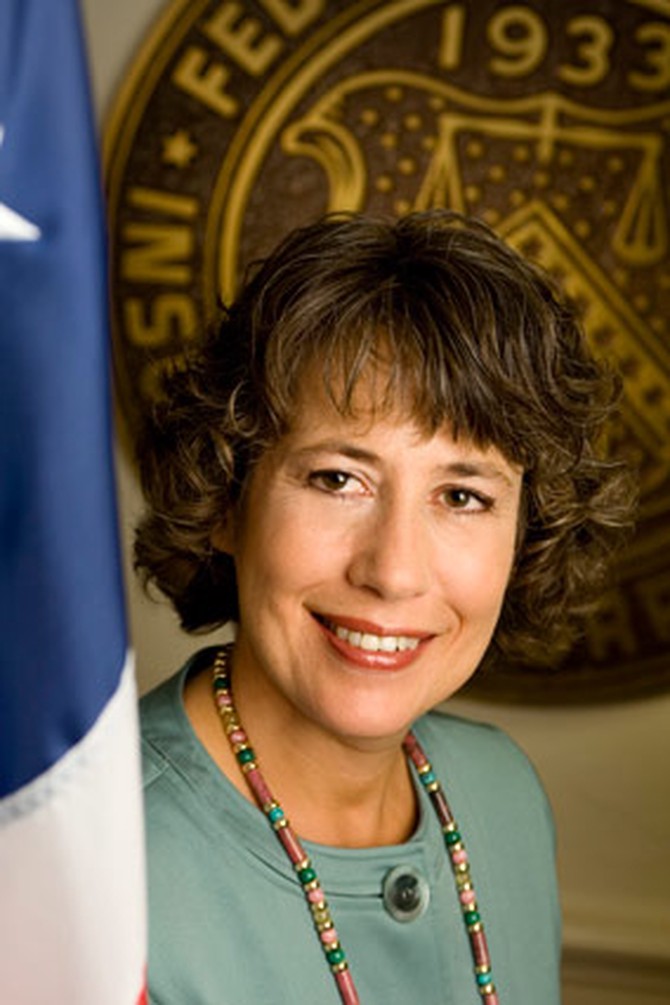
Photo: Courtesy of the FDIC
The Power of the Voice in the Wilderness: Sheila Bair
Chairman of the FDIC
In late 2007—months in advance of many of her peers—Sheila Bair, now 56, accurately predicted that the mania for subprime loans would result in financial upheaval. A year later, she warned (again, accurately) that bailing out financial institutions would do little for struggling homeowners. Her thrifty take on life as the loan ranger:
The fall of 2008 was harrowing for many Americans—problems at banks, insurance and investment firms, not to mention daily triple-digit swings in the stock market—and the crisis really highlighted how important confidence is to our financial system. But confidence is also essential when it comes to speaking up about what you believe in. You can't let yourself be intimidated. You have to hold your ground.
In late 2007—months in advance of many of her peers—Sheila Bair, now 56, accurately predicted that the mania for subprime loans would result in financial upheaval. A year later, she warned (again, accurately) that bailing out financial institutions would do little for struggling homeowners. Her thrifty take on life as the loan ranger:
The fall of 2008 was harrowing for many Americans—problems at banks, insurance and investment firms, not to mention daily triple-digit swings in the stock market—and the crisis really highlighted how important confidence is to our financial system. But confidence is also essential when it comes to speaking up about what you believe in. You can't let yourself be intimidated. You have to hold your ground.
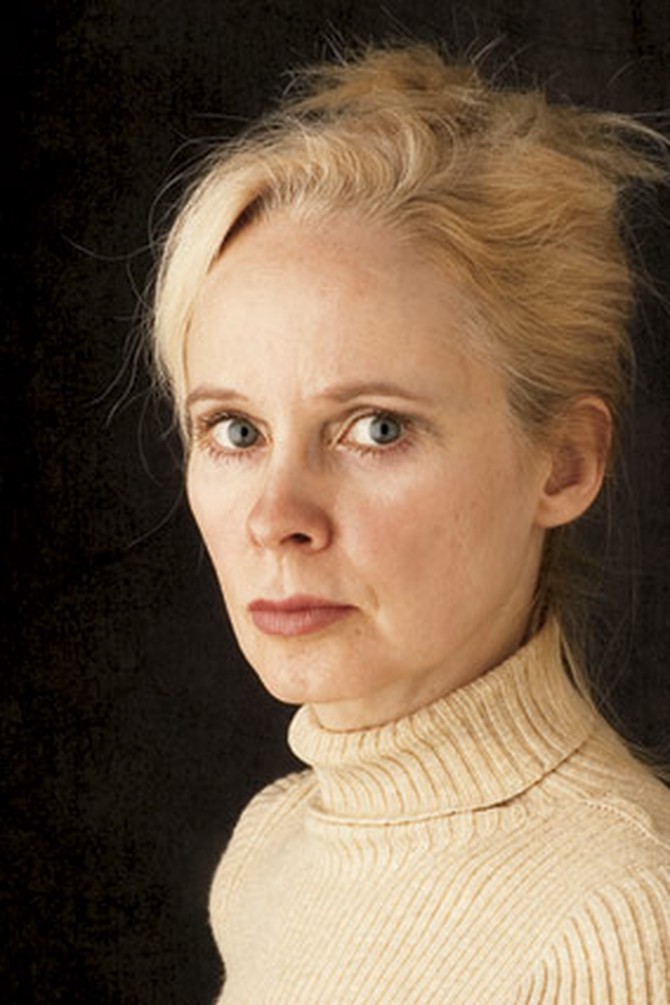
Photo: © Joe Gaffney
The Power of the Unflinching Gaze: Mary Gaitskill
Writer
With her 1988 story collection, Bad Behavior—a devil's catalog of wanton sex, betrayal, and profoundly flawed people—Mary Gaitskill, now 55, established herself as a writer sensitive to the deepest cracks in the human psyche. Storyteller and memoirist Pam Houston appreciates her...
Mary Gaitskill knows it is a writer's job to never look politely away from weakness, darkness, frailty, ours or her own, because this is the only level of interrogation where what is authentic, and therefore luminous, may be revealed. She knows also that one human being is not as distinct from another as skin and skeleton would have us believe, that the fluidity between us is expressed continuously, in sex and similar acts of soul stealing, in words and sometimes in their absence. She knows that sometimes we collect objects from the physical world into ourselves and leave essential pieces of ourselves discarded among them. When I read her fiction, it reminds me that I know these things, too, but the difference must be that she knows she knows them, and I am standing tentative, with my fingers crossed.
Her intelligence is holographic, what is ground will not stay still and is made, at best, of fragments, memories and mirages, Rorschach inkblots that reveal now a waitress, now a soldier, now a hammerhead shark. Morality is both undeniable and always subject to revision. Instead of offering protection from the world, she offers us the tools to take a kind of pleasure in its difficulty. She knows it is possible for us to come into a certain power, an intuition that sings, that is not squeamish, that travels through self-obsession to someplace beyond it, that employs narcissism in the name of compassion and courage. She sees among and between layers of so-called reality and feels the world spinning, faster, faster feels herself sliding sideways, throws her hands in the air and gives in to gravity. She is ruthless and merciful. She tells a whole truth.
With her 1988 story collection, Bad Behavior—a devil's catalog of wanton sex, betrayal, and profoundly flawed people—Mary Gaitskill, now 55, established herself as a writer sensitive to the deepest cracks in the human psyche. Storyteller and memoirist Pam Houston appreciates her...
Mary Gaitskill knows it is a writer's job to never look politely away from weakness, darkness, frailty, ours or her own, because this is the only level of interrogation where what is authentic, and therefore luminous, may be revealed. She knows also that one human being is not as distinct from another as skin and skeleton would have us believe, that the fluidity between us is expressed continuously, in sex and similar acts of soul stealing, in words and sometimes in their absence. She knows that sometimes we collect objects from the physical world into ourselves and leave essential pieces of ourselves discarded among them. When I read her fiction, it reminds me that I know these things, too, but the difference must be that she knows she knows them, and I am standing tentative, with my fingers crossed.
Her intelligence is holographic, what is ground will not stay still and is made, at best, of fragments, memories and mirages, Rorschach inkblots that reveal now a waitress, now a soldier, now a hammerhead shark. Morality is both undeniable and always subject to revision. Instead of offering protection from the world, she offers us the tools to take a kind of pleasure in its difficulty. She knows it is possible for us to come into a certain power, an intuition that sings, that is not squeamish, that travels through self-obsession to someplace beyond it, that employs narcissism in the name of compassion and courage. She sees among and between layers of so-called reality and feels the world spinning, faster, faster feels herself sliding sideways, throws her hands in the air and gives in to gravity. She is ruthless and merciful. She tells a whole truth.

Photo: © 2009 Jupiterimages Corporation
The Power of Seduction: Cleopatra
Queen of Egypt, beguiler of men
Believed in her time to be the reincarnation of the goddess Isis, Cleopatra conquered with her beauty, yes—and also with her wit, intelligence, and charm. Last year an Egyptian archaeologist discovered what may be her burial site; excavators are now hoping to find the entrance to her tomb. But as Shakespeare well imagined, Cleopatra's elusiveness was her allure:
"Age cannot wither her, nor custom stale
Her infinite variety: Other women cloy
The appetites they feed: but she makes hungry,
Where most she satisfies."
— Shakespeare, Antony and Cleopatra
Believed in her time to be the reincarnation of the goddess Isis, Cleopatra conquered with her beauty, yes—and also with her wit, intelligence, and charm. Last year an Egyptian archaeologist discovered what may be her burial site; excavators are now hoping to find the entrance to her tomb. But as Shakespeare well imagined, Cleopatra's elusiveness was her allure:
"Age cannot wither her, nor custom stale
Her infinite variety: Other women cloy
The appetites they feed: but she makes hungry,
Where most she satisfies."
— Shakespeare, Antony and Cleopatra

Photo: KK Ottessen
Testing, Testing: The Power of Hard Lessons: Michelle Rhee
Remember when your teachers told you that school wasn't about being popular? Michelle Rhee, 40, must have been paying attention. In the three years since she took over the ailing Washington, D.C., school system, Rhee has made some very unpopular moves—she fired her own children's principal, closed underperforming schools, and quickly became known for her take-no-prisoners management style—but she's gotten results. Within her first year, the number of schools with proficiency rates below 20 percent dropped by almost half. Have you been taking notes? Good: Here's our pop quiz on one of Washington's most controversial—and effective—figures.
1. Who among the following supports Rhee?
a. Director Spike Lee
b. Washington, D.C., mayor Adrian Fenty
c. NYC Schools Chancellor Joel Klein
d. President Obama
e. The "Rhee-volutionaries"
f. All of the above
2. How many schools did Rhee close in her first year as chancellor?
a. 2
b. 200
c. 15
d. 23
3. Rhee says most people describe her as
a. Warm and fuzzy
b. Easy and breezy
c. Fire and brimstone
d. "Lots of people say, 'She's too mean.' But I don't know that being nicer would help us get to where we need to go"
4. What does Rhee say when asked if she has the hardest job in Washington?
a. "I do, but don't tell President Obama"
b. "Only on the days that end in y"
c. "Just 8 percent of Washington's kids function at grade level—what do you think?"
d. "No. I was an urban teacher, and compared to that, my job is a walk in the park"
5. Where does Rhee get her confidence?
a. Daily affirmations
b. Every time she fires herself, she makes sure to rehire herself
c. Napoleon's Ten Secrets to Success
d. "I know that if I piss some people off, but radically change kids' learning outcomes, I've done what's right"
(If you answered "d" for each question—except 1, whose answer is "f"—you get an A.)
1. Who among the following supports Rhee?
a. Director Spike Lee
b. Washington, D.C., mayor Adrian Fenty
c. NYC Schools Chancellor Joel Klein
d. President Obama
e. The "Rhee-volutionaries"
f. All of the above
2. How many schools did Rhee close in her first year as chancellor?
a. 2
b. 200
c. 15
d. 23
3. Rhee says most people describe her as
a. Warm and fuzzy
b. Easy and breezy
c. Fire and brimstone
d. "Lots of people say, 'She's too mean.' But I don't know that being nicer would help us get to where we need to go"
4. What does Rhee say when asked if she has the hardest job in Washington?
a. "I do, but don't tell President Obama"
b. "Only on the days that end in y"
c. "Just 8 percent of Washington's kids function at grade level—what do you think?"
d. "No. I was an urban teacher, and compared to that, my job is a walk in the park"
5. Where does Rhee get her confidence?
a. Daily affirmations
b. Every time she fires herself, she makes sure to rehire herself
c. Napoleon's Ten Secrets to Success
d. "I know that if I piss some people off, but radically change kids' learning outcomes, I've done what's right"
(If you answered "d" for each question—except 1, whose answer is "f"—you get an A.)
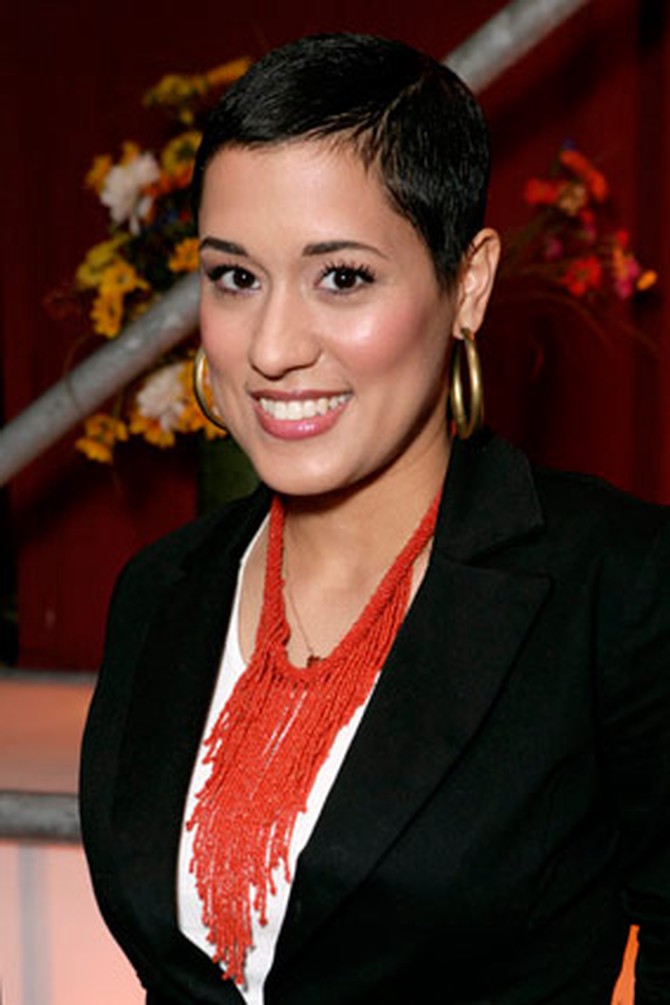
Photo: Todd Williamson/WireImage.com
The Power of Telling Your Story: Mayda del Valle
Spoken-word artist
Mayda del Valle doesn't waste words. Or time. In 2001, at the age of 22, the Chicago native became the youngest poet and first Latino to win the Individual National Poetry Slam. Since then, her bracing style—informed by Latin jazz and hip-hop—has set off sparks on Russell Simmons's Def Poetry HBO series and Broadway show; in May she performed at the White House at the invitation of the president and First Lady. When O asked del Valle to talk about what she does, she composed this poem.
Mayda del Valle doesn't waste words. Or time. In 2001, at the age of 22, the Chicago native became the youngest poet and first Latino to win the Individual National Poetry Slam. Since then, her bracing style—informed by Latin jazz and hip-hop—has set off sparks on Russell Simmons's Def Poetry HBO series and Broadway show; in May she performed at the White House at the invitation of the president and First Lady. When O asked del Valle to talk about what she does, she composed this poem.
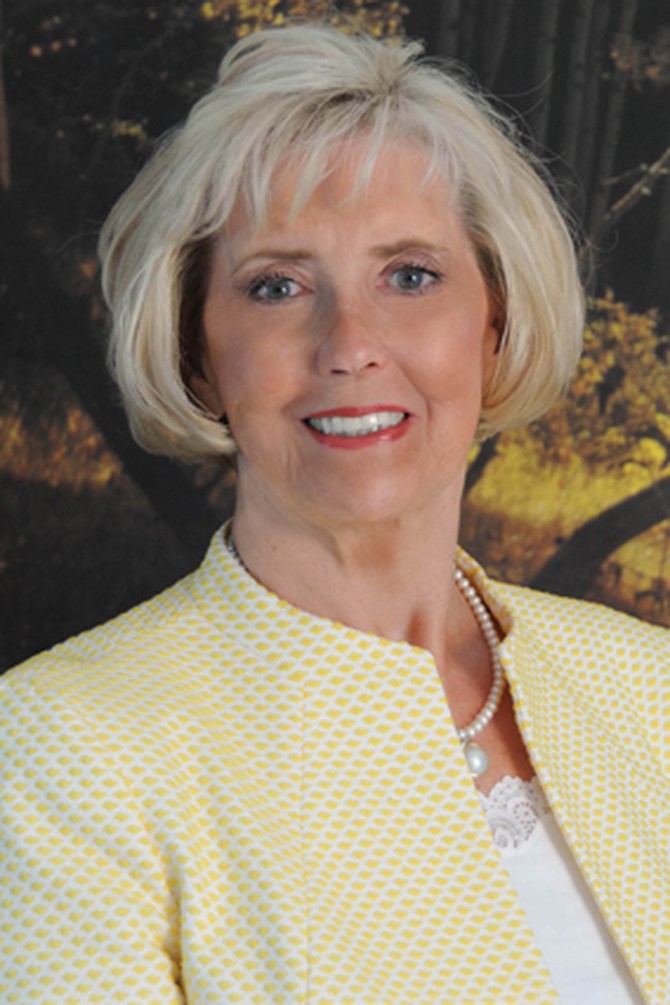
Photo: Cindy Kilgore
The Awesome Power of Everywoman: Lilly Ledbetter
Retiree, hero
For 19 years, while Lilly Ledbetter was a manager at a Goodyear tire plant in Alabama, her male peers' salaries far outpaced her own; by the late 1990s, the highest-paid male manager was making some $18,000 more for comparable work. Though Ledbetter didn't prevail when her discrimination suit reached the Supreme Court, her case led to the Lilly Ledbetter Fair Pay Act, which President Obama signed into law in January. On behalf of women everywhere, we salute her...
Work hard and play by the rules: That cornerstone of the American dream crumbled a bit in 2007 when the Supreme Court ruled against Lilly Ledbetter. The five-four decision boiled down to timing: Five male justices invoked the statute of limitations for pay-discrimination claims, and decided the inequity Ledbetter suffered had expired.
But Ledbetter kept right on fighting. And the new law that bears her name effectively nullified the Supreme Court decision. Today the 71-year-old retiree is championing what she calls "the next logical step": the Paycheck Fairness Act, which would strengthen penalties for equal-pay violations.
Lilly Ledbetter never received the hundreds of thousands of dollars due her in back pay and benefits. But her name is now shorthand for a new, improved American motto: Work hard, play by the rules—and, if necessary, change them.
For 19 years, while Lilly Ledbetter was a manager at a Goodyear tire plant in Alabama, her male peers' salaries far outpaced her own; by the late 1990s, the highest-paid male manager was making some $18,000 more for comparable work. Though Ledbetter didn't prevail when her discrimination suit reached the Supreme Court, her case led to the Lilly Ledbetter Fair Pay Act, which President Obama signed into law in January. On behalf of women everywhere, we salute her...
Work hard and play by the rules: That cornerstone of the American dream crumbled a bit in 2007 when the Supreme Court ruled against Lilly Ledbetter. The five-four decision boiled down to timing: Five male justices invoked the statute of limitations for pay-discrimination claims, and decided the inequity Ledbetter suffered had expired.
But Ledbetter kept right on fighting. And the new law that bears her name effectively nullified the Supreme Court decision. Today the 71-year-old retiree is championing what she calls "the next logical step": the Paycheck Fairness Act, which would strengthen penalties for equal-pay violations.
Lilly Ledbetter never received the hundreds of thousands of dollars due her in back pay and benefits. But her name is now shorthand for a new, improved American motto: Work hard, play by the rules—and, if necessary, change them.
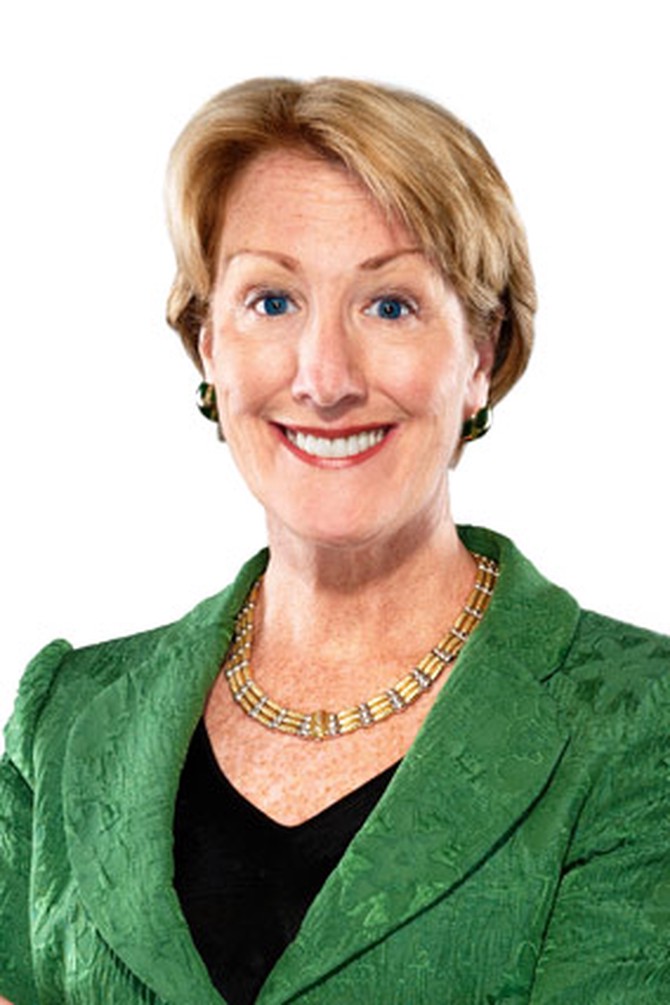
Photo: Courtesy of Xerox
The Power of Letting Go: Anne Mulcahy
Former CEO of Xerox
She was once dubbed "the accidental CEO." An English and journalism major, Anne Mulcahy never aspired to the top job at Xerox. But once she got it, she surrounded herself with a team of people smart enough and brave enough to help her halt the venerable company's downhill slide, and led Xerox to a remarkable turnaround. Yet the most remarkable thing she did was walk away. New York Times op-ed columnist Gail Collins analyzes the exit strategy:
Transfers of power are rarely graceful—or voluntary. Think King Saul and David. Or Jack Welch on TV volunteering to "get a gun out and shoot" his successor, Jeffrey Immelt, if Immelt failed to make his earnings targets at GE. Or virtually every other CEO in modern Wall Street history.
Up till now, most of the major power handovers at American companies have involved men. So we were definitely prepared to gloat about the first big woman-to-woman transfer at a top U.S. corporation—the shift at Xerox from CEO Anne Mulcahy to her handpicked successor, Ursula Burns. On July 1, Burns became the first African-American woman to head a Fortune 500 firm. She was also perhaps one of the best prepared. She and Mulcahy had built a seven-year partnership, with Burns's engineering pedigree perfectly complementing Mulcahy's background in sales. But after all her preparation to make sure Burns could move seamlessly into the top job, when the time came to actually begin the transfer, Mulcahy found ceding her authority surprisingly hard: "It's like your kids growing up, I guess, right?" she told Fortune. "It's like, 'Oh, I'm not the center of the universe anymore.'"
The next-to-final step, in which Burns became president while Mulcahy stayed on for a period as CEO, was the critical moment—when, as they told Fortune, they found they didn't agree at all about how Burns's new role would work or which powers Mulcahy should retain. Wisely, Mulcahy and Burns realized that they should stop worrying about the organizational chart and instead focus on where they wanted the company to go next. "One of the things we often miss in succession planning," Mulcahy told The Wall Street Journal, "is that it should be gradual and thoughtful, with lots of sharing of information and knowledge and perspective, so that it's almost a non-event when it happens."
It's no big trick ceding power when you're eager to leave. But making it work when your heart wants to hang on requires serious reserves of self-awareness and willpower. It was great to see a woman show the corporate world how masterfully it can be done.
She was once dubbed "the accidental CEO." An English and journalism major, Anne Mulcahy never aspired to the top job at Xerox. But once she got it, she surrounded herself with a team of people smart enough and brave enough to help her halt the venerable company's downhill slide, and led Xerox to a remarkable turnaround. Yet the most remarkable thing she did was walk away. New York Times op-ed columnist Gail Collins analyzes the exit strategy:
Transfers of power are rarely graceful—or voluntary. Think King Saul and David. Or Jack Welch on TV volunteering to "get a gun out and shoot" his successor, Jeffrey Immelt, if Immelt failed to make his earnings targets at GE. Or virtually every other CEO in modern Wall Street history.
Up till now, most of the major power handovers at American companies have involved men. So we were definitely prepared to gloat about the first big woman-to-woman transfer at a top U.S. corporation—the shift at Xerox from CEO Anne Mulcahy to her handpicked successor, Ursula Burns. On July 1, Burns became the first African-American woman to head a Fortune 500 firm. She was also perhaps one of the best prepared. She and Mulcahy had built a seven-year partnership, with Burns's engineering pedigree perfectly complementing Mulcahy's background in sales. But after all her preparation to make sure Burns could move seamlessly into the top job, when the time came to actually begin the transfer, Mulcahy found ceding her authority surprisingly hard: "It's like your kids growing up, I guess, right?" she told Fortune. "It's like, 'Oh, I'm not the center of the universe anymore.'"
The next-to-final step, in which Burns became president while Mulcahy stayed on for a period as CEO, was the critical moment—when, as they told Fortune, they found they didn't agree at all about how Burns's new role would work or which powers Mulcahy should retain. Wisely, Mulcahy and Burns realized that they should stop worrying about the organizational chart and instead focus on where they wanted the company to go next. "One of the things we often miss in succession planning," Mulcahy told The Wall Street Journal, "is that it should be gradual and thoughtful, with lots of sharing of information and knowledge and perspective, so that it's almost a non-event when it happens."
It's no big trick ceding power when you're eager to leave. But making it work when your heart wants to hang on requires serious reserves of self-awareness and willpower. It was great to see a woman show the corporate world how masterfully it can be done.
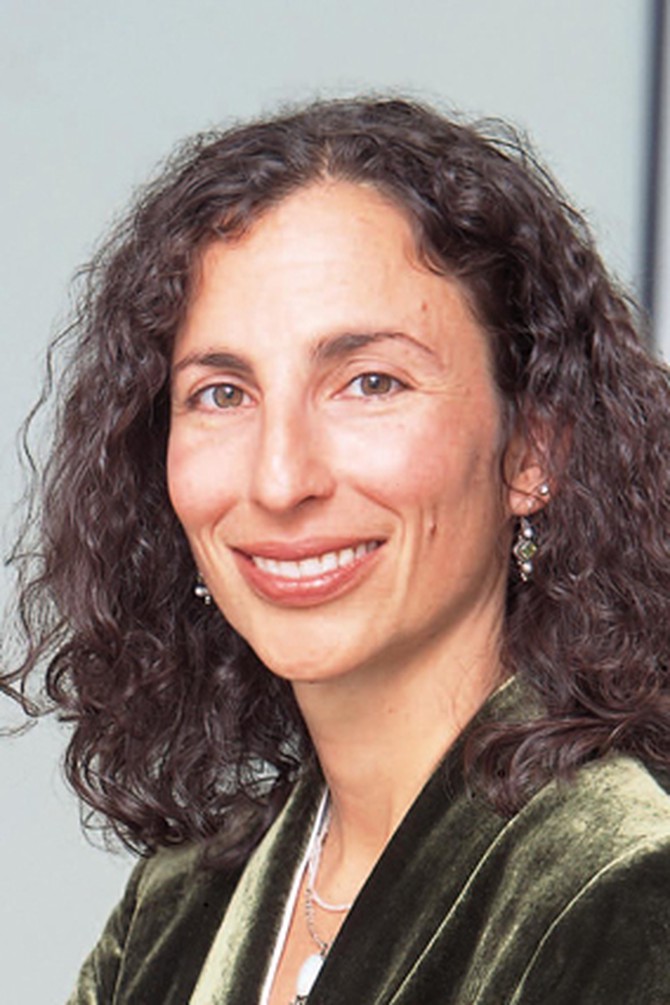
Photo: Courtesy of Melanie Sloan
The Power of Crying Foul: Melanie Sloan
Government watchdog
In 2003 Melanie Sloan, then 38, left a plum position as assistant U.S. attorney to start running a new government watchdog group, Citizens for Responsibility and Ethics in Washington (CREW). Working alone for the first 18 months, she gathered evidence that then House Majority Leader Tom DeLay (R-TX) had violated House ethics rules; her efforts helped lead to DeLay's disgraced exit from government in 2006. Since then CREW—now with a staff of 17—has revealed dirty tricks by lobbyist Jack Abramoff, Rep. John Murtha (D-PA), and many others. Politicos, beware: No matter where you fall on the partisan divide, Sloan is looking over your shoulder. We asked her to describe the view .
Mine is a very wearing job—you get rid of bad guys and then more appear. It's never done. But here is what's great: When I pick up the paper and read something terrible, I don't just think, "Wow, that is awful and I hope somebody does something about it." I read it and go, "Wow, what can I do about that today?" Yes, it's hard to fight for what you believe in, but hard is never a reason not to fight. My mom would say I've always had an innate sense of fairness and justice. But I also went to a Quaker high school and took their values of social justice to heart. So even if I alienate all of Washington, I'm not afraid. In fact, when people start attacking me, I'm happy. It means I'm getting to them, and that means I'm doing my job.
The O Power List: 11 more ways of looking at power
In 2003 Melanie Sloan, then 38, left a plum position as assistant U.S. attorney to start running a new government watchdog group, Citizens for Responsibility and Ethics in Washington (CREW). Working alone for the first 18 months, she gathered evidence that then House Majority Leader Tom DeLay (R-TX) had violated House ethics rules; her efforts helped lead to DeLay's disgraced exit from government in 2006. Since then CREW—now with a staff of 17—has revealed dirty tricks by lobbyist Jack Abramoff, Rep. John Murtha (D-PA), and many others. Politicos, beware: No matter where you fall on the partisan divide, Sloan is looking over your shoulder. We asked her to describe the view .
Mine is a very wearing job—you get rid of bad guys and then more appear. It's never done. But here is what's great: When I pick up the paper and read something terrible, I don't just think, "Wow, that is awful and I hope somebody does something about it." I read it and go, "Wow, what can I do about that today?" Yes, it's hard to fight for what you believe in, but hard is never a reason not to fight. My mom would say I've always had an innate sense of fairness and justice. But I also went to a Quaker high school and took their values of social justice to heart. So even if I alienate all of Washington, I'm not afraid. In fact, when people start attacking me, I'm happy. It means I'm getting to them, and that means I'm doing my job.
The O Power List: 11 more ways of looking at power
From the September 2009 issue of O, The Oprah Magazine

